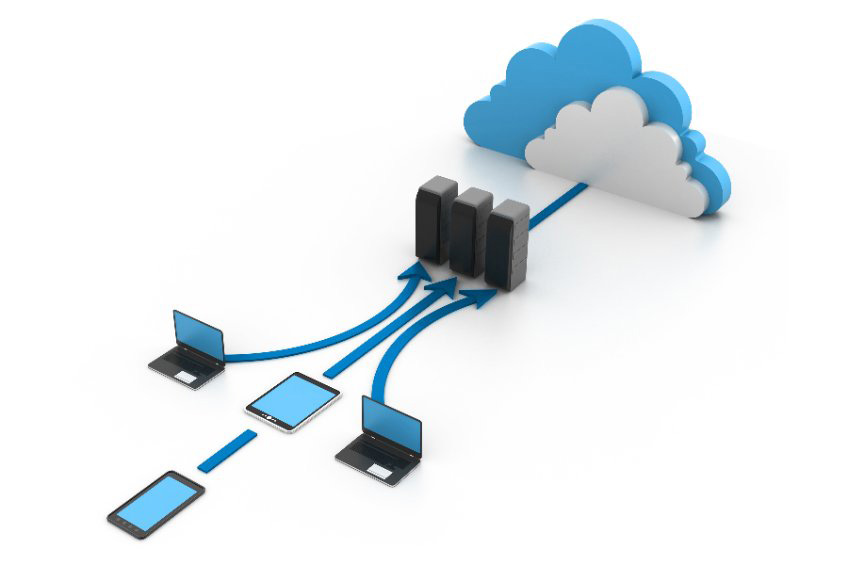Blog
Stay Updated With The
Latest IT News

Get in the Cloud
I got in my car last Thursday and headed into downtown Boston from my office in Newton. I was on my way to an evening social event for a networking group that I recently joined.
Normally, I’d be concerned about finding a good place to park. There are plenty of garages, but the prices vary by quite a bit and you never know what you’re going to find when you get there.
This time, though, and on the recommendation of my wife, Cynthia, I tried out an online service called SpotHero.
The idea is simple: You select and pay for your parking spot ahead of time. When you arrive and when you leave, you simply flash a QR code on your phone and the gate opens.
It’s more convenient than the traditional approach and, since you can search ahead of time, it’s often much cheaper — I paid $9; all the other garages nearby were $25.
As I drove home that night it occurred to me: my parking experience had moved to “the cloud.” All the prework and payment was done online. I didn’t even need a parking ticket, just an app on my phone.
Your Business Needs to be in the Cloud
“The Cloud” refers to software and services that are accessed remotely rather than locally on your personal computer or local company network.
In our personal lives, and whether we are consciously aware of it or not, most of us use the cloud quite a bit. Services like Spotify, Gmail, and YouTube, not to mention most of the apps on your phone, are interacting with a server in some faraway location.
Many businesses, however, have been slow to make the move — although Covid, which forced companies almost overnight to provide easy and secure remote access for their employees, certainly accelerated things.
For example, one company first became our client a few years ago when it got in touch after one of its local servers died unexpectedly. We didn’t try to replace the server — we took immediate steps to move them to a cloud environment (it only took a few days). When Covid hit, and even though this organization worked primarily from just two locations and nearly every employee worked on site, there was zero disruption.
The Cloud offers a number of advantages to any business:
- Flexibility. Whether your people work around the corner or around the world (or some combination), when you move your critical business functions to the cloud, you give everyone quick and simple access to the tools and information they need. For example, I can be travelling and my assistant can update a presentation minutes before I need it, since we are both accessing it from a shared remote location.
- Secure Environment. Once you permit your employees to have access from outside your physical network, you have introduced some degree of risk. Now that this has become a business requirement, the question is whether your in-house team should take on this role or whether you should outsource it.
To me, the answer is pretty clear: A third-party cloud provider is inherently more secure because these organizations live and die by making sure they have taken all steps necessary. They have teams of people dedicated to this one task. It’s not perfect, but as a small or midsize business, your IT folks simply can’t give the save level of attention to remote security. - Reliability. If you’re running everything locally, you are responsible for provisioning and maintaining hardware, redundant power, virtual private network, software updates, anti-virus, multiple backups, and more. Any hiccup or outage, whether due a natural disaster, bad actor, or malfunction, falls on you to fix. When you move to the cloud, for the most part, those problems go away.
- Cost Savings. When you no longer own and maintain the infrastructure, you shift the cost to the cloud provider. Further, if you happen to be a nonprofit, many cloud services provide highly discounted (often free) access to their offerings.
Is the Cloud Risk-Free?
No. There is a greater than zero percent chance that there will be an outage or data breach at one of the cloud services you use.
But now that Covid has forced nearly every modern business to provide some degree of remote access to its employees, you are already living with that kind of risk. And the odds of a breach or outage happening to you, in your own locally maintained environment, are quite a bit higher.
Final Thoughts
If the critical systems that your business uses are running on equipment within your office, then providing remote access to those things is a complicated and potentially dangerous undertaking.
Make plans now to transition to the cloud if you have not done so already. You won’t regret it!




